BAGHDAD (Army News Service, March 16, 2009) - A revolutionary program called "Sex Signals" aims to change the taboo nature of sexual discussions and use that newfound openness to combat acquaintance rapes.
The "Sex Signals" players visited Camp Victory, Iraq, March 11, to discuss dating, sex and acquaintance rape with servicemembers. The program intertwines humor with education to communicate with younger crowds.
The two-person show explores how mixed messages, gender role stereotypes and unrealistic fantasies contribute to misunderstanding between the sexes. These misunderstandings, such as assuming something about someone based on how they dress, can be key contributors in sexual assaults, according to the program.
"Sex Signals" was started in 2000 by Gail Stern and Christian Murphy, who brought the show to colleges across the United States. After seeing the positive effects the performances had at various military installations, Army leaders contracted Catharsis Productions for 400 performances to educate personnel.
The program was first offered at Fort Hood, Texas, in November and now "Sex Signals" actors are providing the training at installations across the Army.
In the Camp Victory performance, servicemembers viewed and interacted with improvisational scenarios that illustrated how perception can alter how men and women interact with one another.
Servicemembers got to dictate the scene and they also had the opportunity to stop the scene when a character crossed the line to disrespect or assault. They were also given scenarios that could happen to anyone in the audience and openly discussed what is or isn't sexual assault.
The audience participation helps people get more comfortable with discussing sensitive topics, said Kyle Terry, an actor for "Sex Signals." He said the program's aim is to open up a dialogue between servicemembers to help them communicate with each other regarding sex and rape. The program also helps people learn how to clearly articulate what they want and don't want in a relationship and it improves listening skills, he added.
While many visions of rape involve a masked stranger in a dark alley, most rapes in the 18-24 age group are committed by someone known to the victim, the program points out.
One class participant, Spc. Lela Lottermoser, from the 520th Air Supply Medical Company, said learning about acquaintance rape was valuable for her, because she normally only considered stranger rape a danger.
The performance also addressed the subject of consent. The actors depicted scenarios where consent was questionable and encouraged group discussions on whether consent was or wasn't given. The final verdict was, if consent isn't clearly verbally stated, then it doesn't count.
"It was really important to learn about verbal consent instead of just assuming [it's OK]," said Pfc. Andrew R. Smith.
The main purpose of this innovative training was to give troops the tools they need to prevent and avoid sexual assault situations.
"We're giving people the vocabulary to have these conversations," said Amber Kelly, the other actor for "Sex Signals."
Vocabulary can help people better understand each other and possibly curtail sexual assaults, she said.
"Ultimately, we want to prevent rape from happening," Terry said.
(Staff Sgt. Joy Pariante serves with the 13th Public Affairs Detachment.)
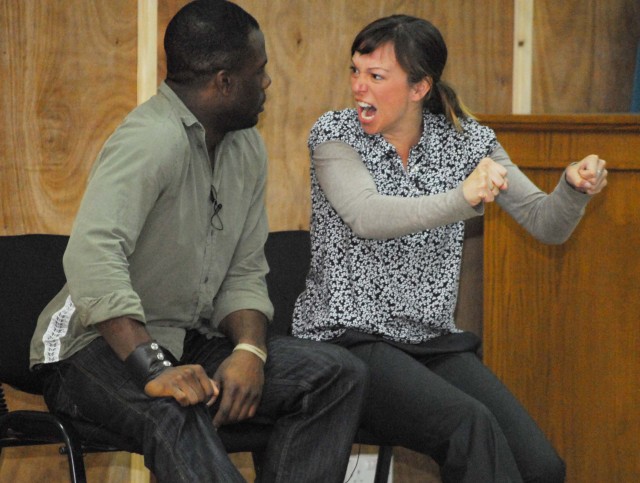
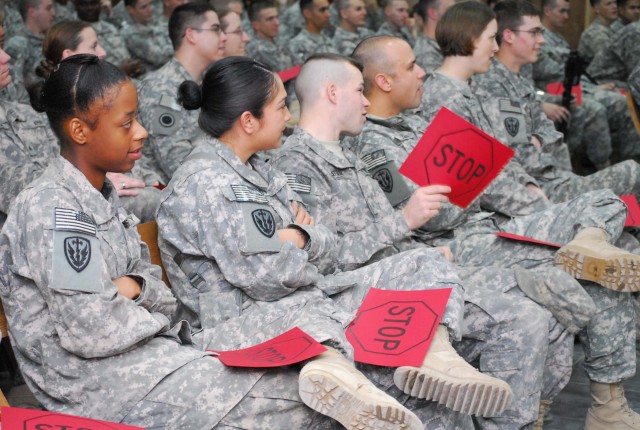
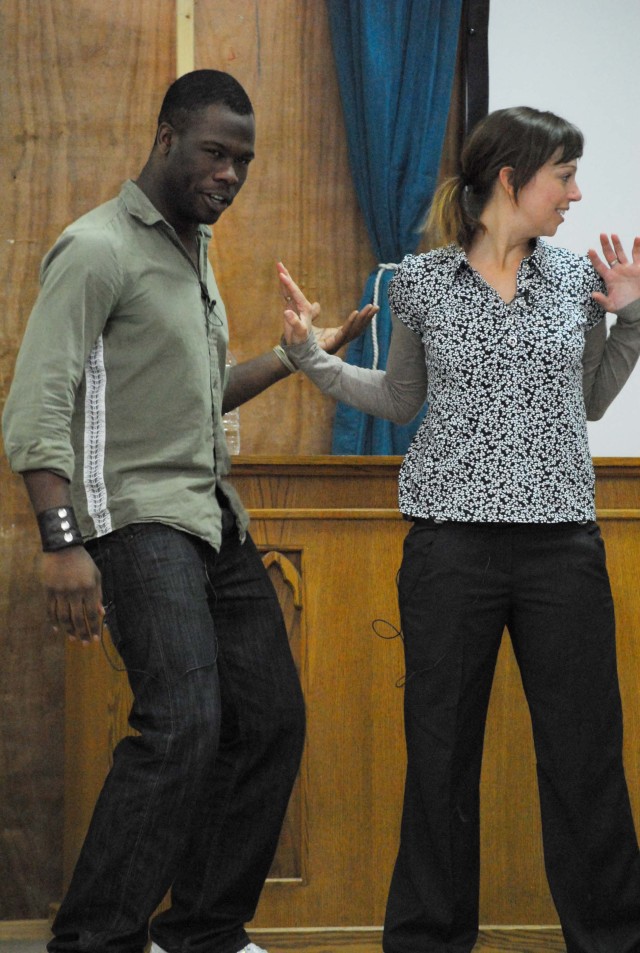
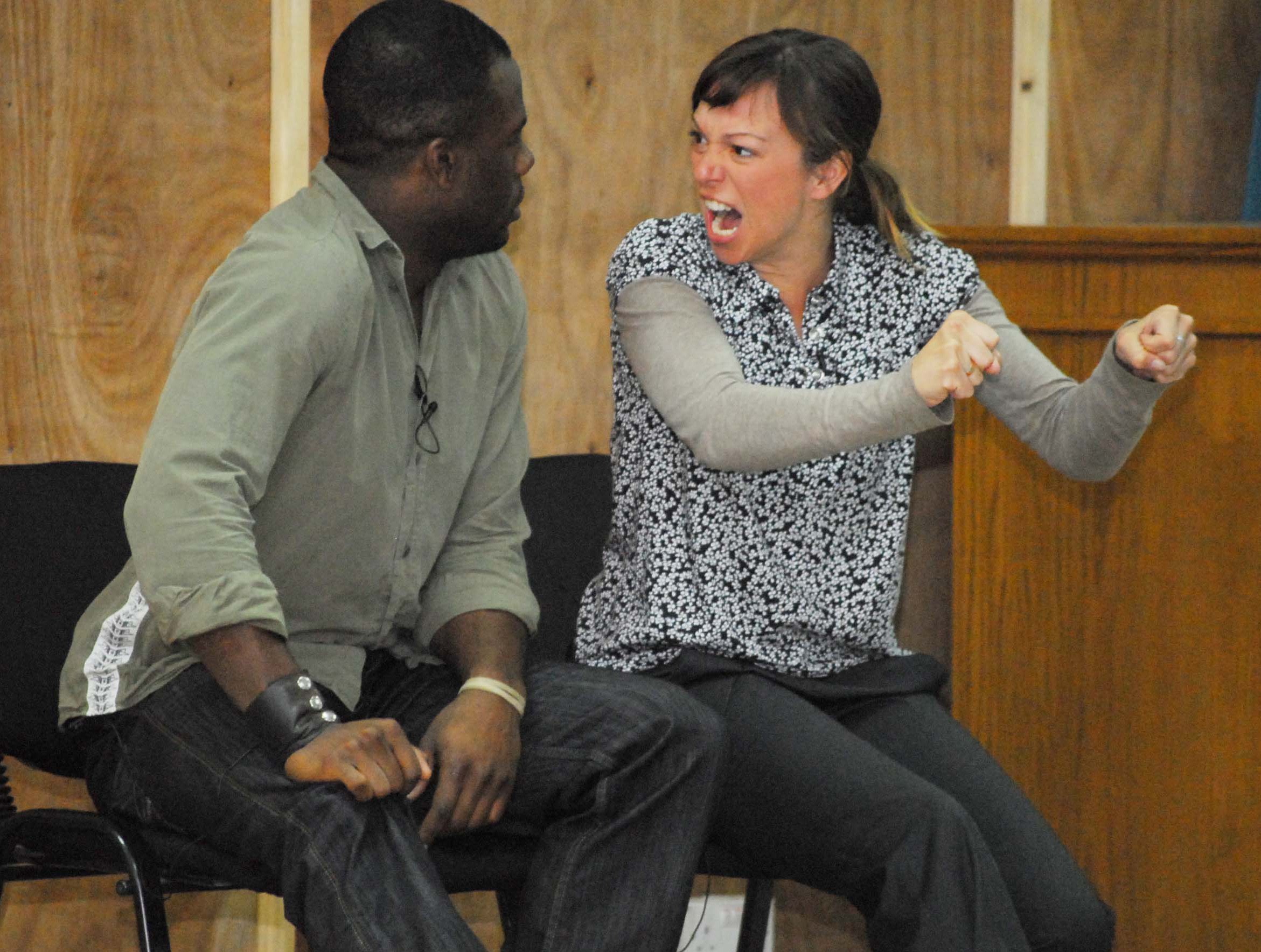
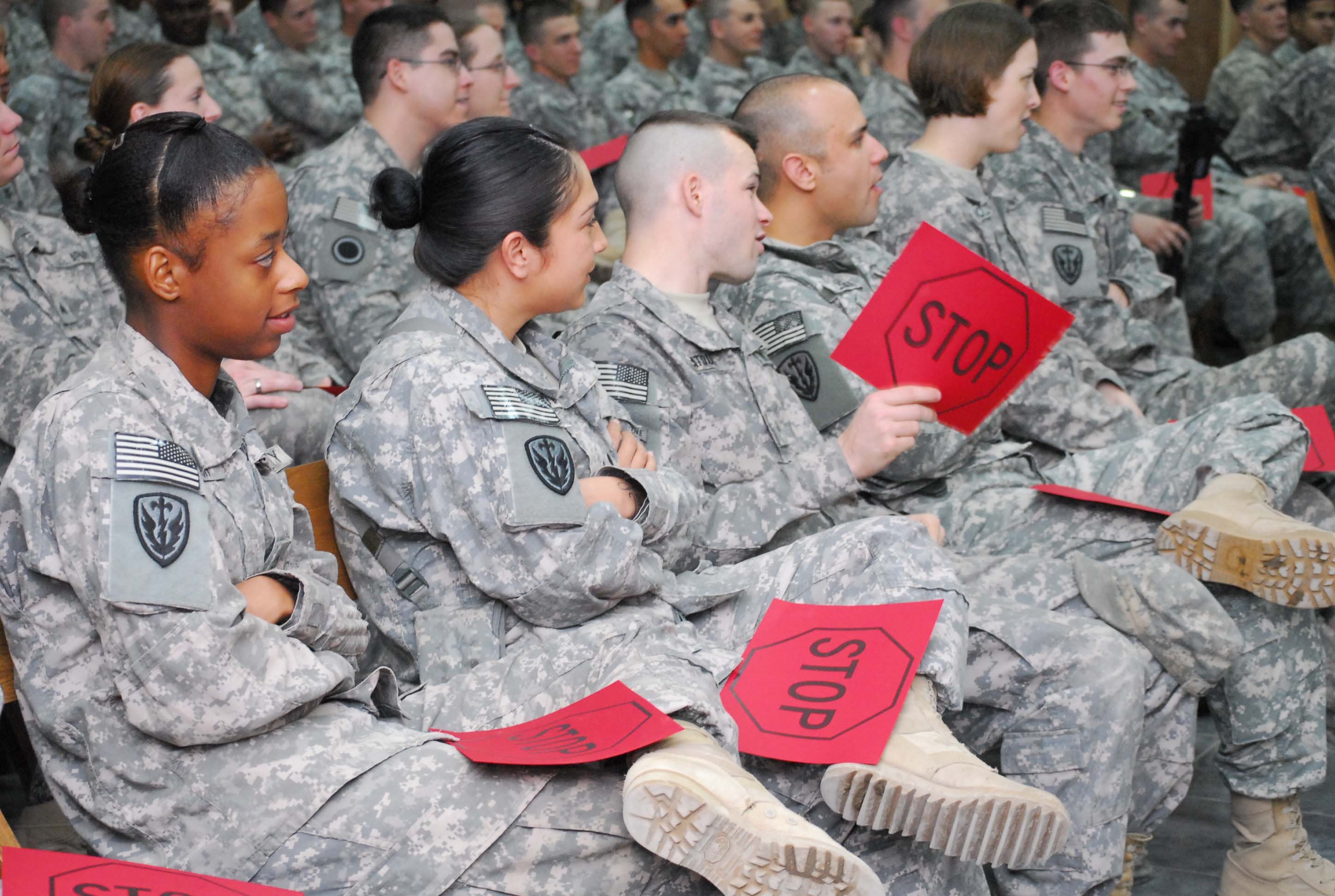
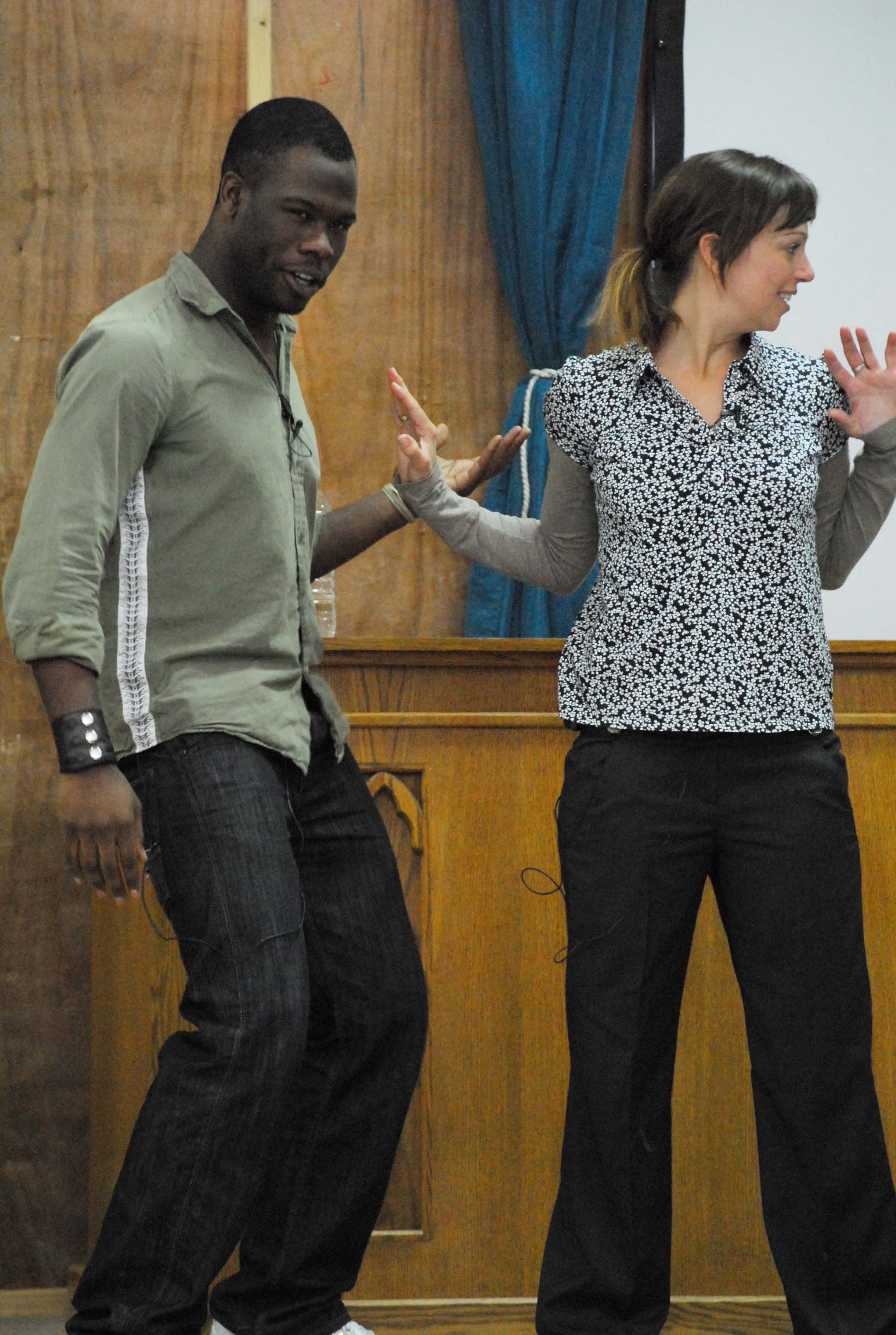
Social Sharing